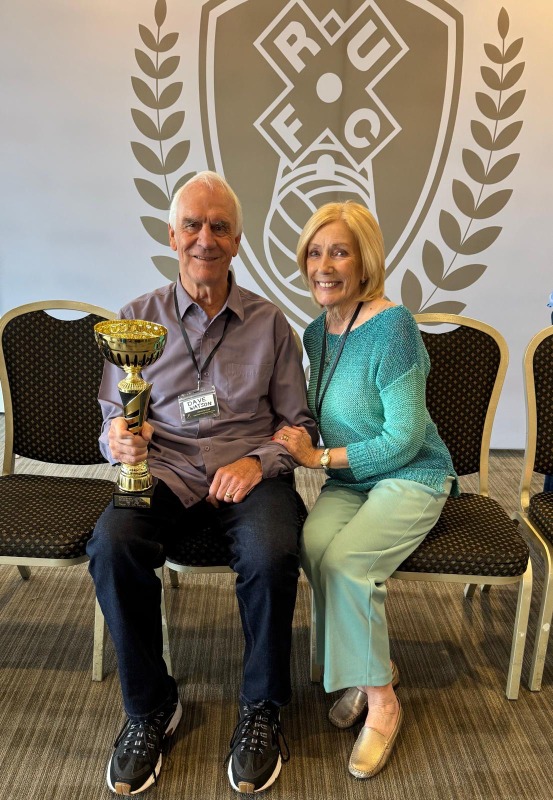search
date/time
 | Lancashire Times Weekend Edition |

Alicia Newton
Sport Reporter
12:00 AM 26th September 2025
sports
Rotherham United's ‘Greatest Ever Player’ Continues Legal Fight For Recognition Of Football’s Toll On His Health

David Watson
Photo: taken by David's daughter Heather Watson
Winner of the Rotherham United’s ‘Greatest Ever Player’ fan vote, David Watson, is continuing to fight for his neurological condition to be recognised as a result of repeated head injuries sustained during his football career.
Doctors have described Watson to be living with ‘probable Alzheimer’s’ and ‘CTE’ (chronic traumatic encephalopathy) after his playing career which lasted for two decades.
On Watson’s illness, Dr Adam White, Director of Brain Health at the PFA (Professional Footballer’ Association) , said: “David and [his wife] Penny have shown remarkable strength in speaking out about the challenges they face, and real resilience in continuing to pursue this through the legal process.”

David and Penny
“The PFA will continue to stand alongside them, and work to ensure that all former members and their families receive the care and support they deserve.”
Watson, who played for several other English clubs including Manchester City and Sunderland as well as Bundesliga side Werder Bremen, has already had his case heard before the First-tier Tribunal (FTT).
However, the FTT dismissed Watson’s claim to overturn the DWP’s previous decision to not award industrial injuries benefits despite the FTT accepting the documentation of 10 head injuries which could be described as accidents during his time as a footballer.
This is because the FTT couldn’t be satisfied that the 10 documented injuries had a direct contribution to David’s illness and it instead concluded that: ‘the “process” of playing football routinely for many years, and the numerous undocumented injuries David would have therefore sustained, meant that he would have had the same neurological decline had none of the highlighted accidents occurred.’
On the impact that football has had on his illness, Watson’s wife Penny said: “David has always been proud of what he achieved in football, but the reality is that the game has left him with a devastating illness.”
“What matters now is that his injuries are recognised for what they were - real accidents that caused lasting damage.”
“We want to make sure his case is treated fairly, and that other families in the same position see that their experiences are being taken seriously too.”
The former defender who gained 65 England caps will have his appeal heard by the Upper Tribunal on 1st October 2025 after backing by the PFA.
Wrongly treating repeated head injuries as a “process” rather than accidents.
Failing to provide proper reasons for its conclusions.
Drawing inadequate and flawed inferences from limited evidence about family history.
David Watson is represented by human rights solicitor Ryan Bradshaw from law firm Leigh Day, and if successful the appeal could see his case be returned to the First-tier Tribunal to be reconsidered under the correct legal approach.
On the tribunal and David’s appeal, Bradshaw said: “the tribunal accepted that David suffered multiple head injuries while playing professional football. The mistake it made was to treat many of them as an ongoing ‘process’ rather than specific accidents.”
“The law makes clear that repeated accidents can amount to an industrial injury, David was disabled by the job he loved and ought to benefit from all available assistance. We hope the Upper Tribunal will find in our favour so David’s case can be properly reconsidered.”
Also by Alicia Newton...
Great Britain Won Five Medals, Including One Gold, At The World Archery Para Championships.Women’s Rugby World Cup: A Record-Breaking Final For A Groundbreaking TournamentWomen’s Rugby World Cup: Semi-Final RoundupSheffield Steelkings Secure British Para Ice Hockey Grand SlamWomen’s Rugby World Cup: Quarter-Finals Roundup